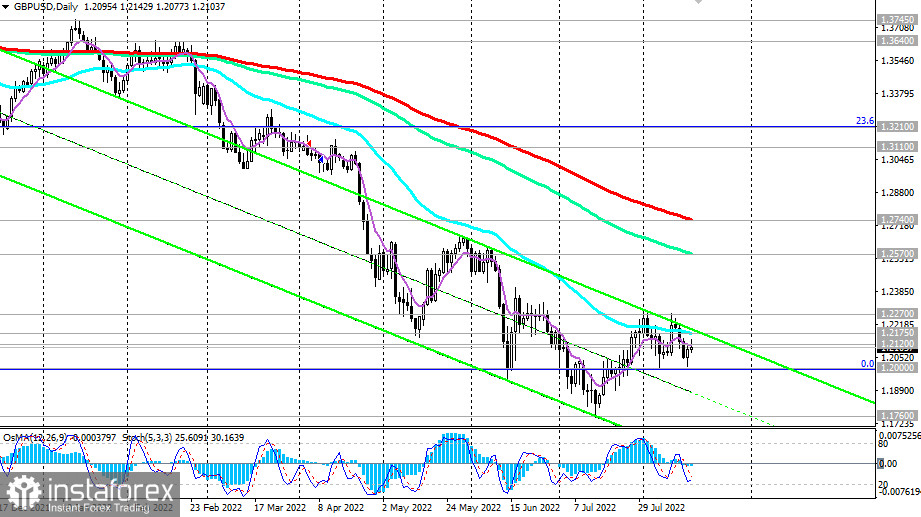As the UK's Office for National Statistics (ONS) reported yesterday, the unemployment rate in June remained at the same level of 3.8%, and employment increased by 160,000, lower than the forecast of an increase of 256,000 and the May figure of 296,000. Data also showed that wages continued to grow, contributing to the acceleration of inflation, but also not keeping pace with rising prices.
And the data published today (at 06:00 GMT) confirmed the acceleration of inflation in the country. UK annual inflation jumped to 10.1% in July, a new 40-year high, against an expected 9.8%, and after rising 9.4% in June, according to figures released by the ONS. Core inflation (excluding volatile food and energy products) rose to 6.2% YoY, against 5.8% in June and an increase to 5.9%.
It is clear that despite aggressive interest rate hikes, the Bank of England is still unable to contain high and accelerating inflation.
Rising prices create additional pressure on the economy and the citizens' standard of living, which can negatively affect consumer demand and, accordingly, GDP (most of the country's GDP is domestic consumer demand).
It is likely that at the next meeting on September 15, BoE leaders will again raise the interest rate.
"Getting inflation under control is my top priority," UK Treasury chief Nadhim Zahawi said today.
However, weak growth prospects and a growing cost-of-living crisis, while British households face further significant increases in energy costs, suggest that it will be increasingly difficult for the economy to withstand such a situation, given the upcoming interest rate hikes by the Bank of England.
Thus, the effectiveness of this measure remains in question. And this means that in response to BoE's interest rate hike, the pound may react not with growth but with a decrease.
Nevertheless, the pound has so far strengthened for a short time in response to today's publication of inflation indicators, and market participants, out of habit, perceive their growth positively, expecting further tightening of monetary policy by the Bank of England.
GBP/USD jumped to an intraday high of 1.2142 after this publication but then declined, falling, at the time of this publication, to 1.2100. In general, there is a downward trend in the pair, taking into account also the renewed growth of the dollar.

Considering also the average volatility of the GBP/USD pair of 100–150 points, a breakdown of the "round" support level of 1.2000 is "not far off."
And today, as we already noted in our yesterday's review, market participants will carefully study the minutes from the July meeting of the Fed in order to more accurately assess the likelihood of an increase in interest rates in September and the further intentions of the leadership of the American central bank. The publication of these protocols is scheduled for 18:00 (GMT).





















